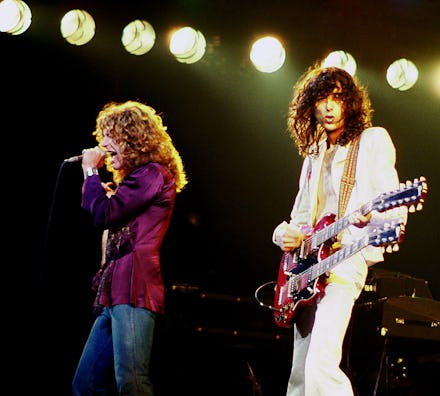How new copyright laws could affect some of the most iconic names in music

Next week, the US Circuit Court of Appeals in San Francisco will hear arguments over whether Led Zeppelin’s “Stairway to Heaven” was a ripoff, and the outcome could shape the fortunes of generations of artists.
The band Spirit alleged their instrumental song “Taurus,” from 1967, was stolen and repackaged into the 1971 rock classic. A jury in LA cleared songwriters Jimmy Page and Robert Plant of plagiarism in 2016. But late Spirit songwriter Randy Wolfe’s estate appealed the decision in 2017. Depending on the outcome of the pending litigation, the Zeppelin case could reach the US Supreme Court.
The Trump administration has officially sided with Led Zeppelin and record labels, who are advocating for a major shift in the way copyright law applies to intellectual property. The government’s decision to get involved underscores the serious business implications at stake.
The key question for the appeals court to decide is whether music published before 1978 is copyright protected based on the sheet music registered at the US Copyright Office or the notes captured on an actual recording. Before 1978, federal law required musicians to submit compositions on paper and didn’t allow audio. Because of that arcane mandate, rock songs were often transcribed by record company clerks, who only captured a fraction of the musical artistry on studio recordings.
Bloomberg Businessweek found that the sheet music on file for many older rock and soul treasures like “Hotel California,” “Born to Run” and “Stairway to Heaven” include only basic chords, lyrics and melody, omitting the distinctive flourishes and iconic solos that make them recognizable. The album version of Lynyrd Skynyrd’s “Free Bird,” for example,” is more than nine minutes long. The sheet music registered with the Copyright Office, however, is just eight lines long and completely omits the guitar solos.
If the court sides with Led Zeppelin, it would mean future musicians would be able to mine unprotected bits of famous older songs and repurpose the catchiest elements with impunity. There would be money to be made from bootlegged karaoke tracks, DIY mixtapes, and covers of pre -1978 music. Brands could co-opt beloved melodies in advertising, video games, ringtones, and film scores.
Theoretically, all aging musicians and their offspring need to do to protect themselves is register sheet music with the Copyright Office that contains all the notes played on a given track. But if the Doors’ registered the keyboard solo from “Riders on the Storm” today, for example, it’s not clear whether the courts would consider the updated music original and how it would play out if used to challenge an infringement claim.
The big concern is that musicians who made it big before 1978 could get taken advantage of while the industry waits for these cases to wind their way through the justice system. Composer Malte Hagemeister, who writes music he licenses for TV and ads, told Bloomberg that what’s needed is common sense copyright overhaul to ensure that doesn’t happen. “The Beatles got inspired by so many black artists, then came hip-hop, then everybody got sued. It’s just fascinating that we all stand on the shoulders of giants,” he said.
Hagemeister sides with the record companies, who are advocating for a path to create new works with old building blocks, but in a way that compensates the great artists of yore. “There should be a way to divide the bounty without suing,” he said. “From an artist’s perspective, it’s beautiful that we have something to protect our rights of creativity. It is precious, but it’s gotten too complicated.”